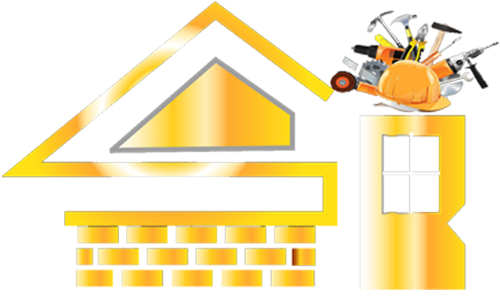Do you know what a residential roof inspection is and why it is crucial for Brooklyn homeowners? A residential roof inspection is a comprehensive examination of your roof’s condition that aims to identify potential problems early.
In Brooklyn, where harsh weather conditions such as heavy snow and strong winds are common, your roof is constantly at risk of damage. Even minor issues, like a few missing shingles or leaks, can quickly turn into expensive repairs. That’s why a roof inspection is so important. It helps spot these issues early before they cause bigger problems. Here, we negotiate all the benefits, key information, and expert tips for residential roof inspections.
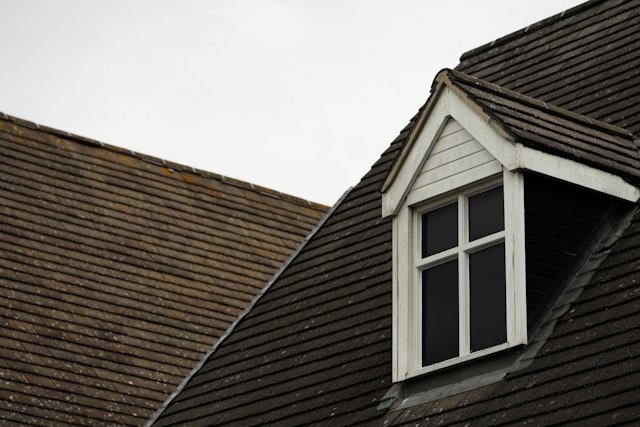
10 Benefits of Residential Roof Inspection for Homeowners
Your roof is a crucial part of your home. It protects you from the elements and keeps your home safe. Over time, it can develop issues that you might overlook right away. A residential roof inspection helps spot these issues early. Here are 10 benefits of getting your roof inspected regularly.
1. Saves You Money: Small roof problems can quickly become big, expensive ones. A missing shingle or a small crack can lead to leaks if ignored. Consistent roof inspections catch these issues before they grow. Fix the damage early. Regular inspections help save money on major repairs in the long run.
2. Extends Roof Life: Roofs wear out over time, especially in areas with harsh weather. Regular inspections help you spot damage. Keeping the roof in good condition prevents further damage. A well-maintained roof will last longer and save you the cost of an early replacement. Regular maintenance keeps your roof in good condition for years.
3. Increases Home Value: A well-maintained roof is a sign of a standard home. When it’s time to sell, buyers look at the roof condition. A strong, secure roof adds value to your home and attracts potential buyers. They will feel more confident in your home if they know the roof is in good shape.
4. Keeps Your Home Safe: A weak roof can lead to leaks or even structural damage. These problems can put your home at risk. Roof inspections help find weak spots early. Inspectors ensure your roof is secure and safe. Regular checks reduce the risk of unexpected damage to your home.
5. Improves Energy Efficiency: An inefficient roof leads to higher energy costs. Poor insulation or ventilation makes your home harder to keep warm in winter or cool in summer. Roof inspections find these issues. Fixing them improves your home’s energy efficiency. You’ll save money on your energy bills by making your roof work more efficiently.
6. Finds Hidden Problems: Many roof problems are not visible from the ground. Leaks in the upper space or under shingles can go neglected for months. These issues can lead to mould or structural damage if left untreated. A professional roof inspection examines all areas of your roof, both inside and out. Early detection of these problems can save your roof from long-term damage.
7. Helps With Insurance Claims: Insurance companies often require roof inspections when you file a claim. Without a recent inspection, your insurance may deny coverage for roof damage. Regular inspections provide the necessary documentation. It helps you file claims quickly and smoothly.
8. Reduces Emergency Repairs: Ignoring roof issues can cause emergencies that need immediate attention. Emergency repairs tend to be more expensive and stressful. Roof inspections find small problems before they increase. Regular inspections give you time to plan and budget for repairs.
9. Protects Against Water Damage: Even a small leak can cause major water damage. Roof inspections find leaks before they cause harm. This helps protect your walls, ceilings, and floors from water damage.
10. Peace of Mind: A solid roof brings peace of mind. Knowing your roof is in good condition helps you relax. Regular inspections make sure no major issues go hidden. Roof inspections assure that everything is in order.
What Are the Common Roof Problems Homeowners Should Watch Out For?
As a homeowner, it’s essential to be aware of the common roof problems that can arise unexpectedly. Over time, your roof can face a lot of stress from weather and age. Small issues can turn into big, costly repairs if not addressed early. Leaks are one of the most common problems, and they can lead to water damage inside your home.
You might also notice missing or damaged shingles. These small problems can quickly worsen, especially in areas with strong winds or heavy rain. Other signs to look for include sagging areas on your roof and visible cracks. Consistent inspection will help you avoid expensive repairs.
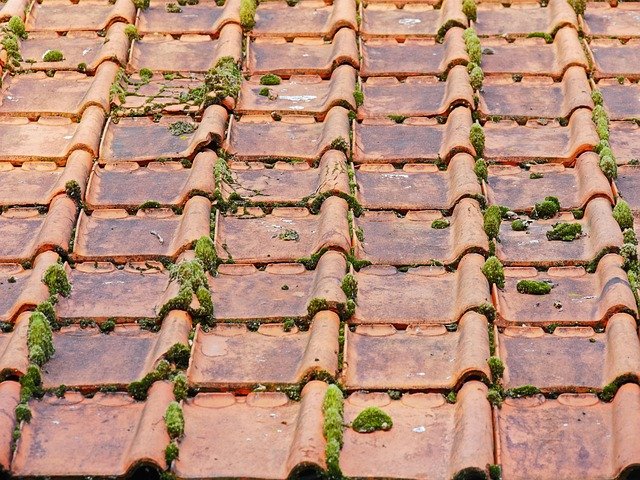
Top 5 Signs That Indicate the Need for a Roof Inspection
- Missing or Damaged Shingles: Shingles that are cracked, curled, or missing altogether can expose your roof to more damage. When these shingles are outdated, your roof can’t protect your home as well. It’s important to replace them before they cause bigger issues like leaks or water damage.
- Water Stains on the Ceiling: Water stains on your ceiling usually mean there’s a leak in your roof. If you notice any spots that appear to be discolouration or dampness, it’s time to inspect your roof. If you ignore it, water damage can lead to mould growth and even structural issues in your home.
- Sagging Roof Deck: If your roof starts to sag in certain areas, it could be a sign of a serious problem. A sagging roof is often caused by water damage or structural issues. This can lead to roof collapse if not repaired promptly.
- Increased Energy Bills: A roof that isn’t properly insulated or ventilated can let out heat in winter and cool air in summer. If your energy bills suddenly increase, your roof might be the problem. An inspection can help identify insulation or ventilation issues.
- Visible Moss or Algae Growth: Moss or algae on your roof can trap moisture and cause damage over time. This growth is more common in damp, shaded areas. It can cause shingles to deteriorate faster and may require cleaning or roof repair.
What Professionals Look for During a Roof Inspection
When you hire a professional to inspect your roof, they don’t just look at the surface. They check for signs of damage that you might not see yourself. A roof inspection is a thorough process to make sure everything is in good condition. Here’s what professionals will typically check during an inspection:
- Roof Surface: Inspectors look for damaged or missing shingles, cracked tiles, or other visible wear and tear. They check for signs of ageing that could compromise the roof’s performance.
- Flashing and Seals: The flashing around vents, chimneys, and skylights is important. Professionals check if these areas are properly sealed to prevent leaks. They make sure water doesn’t get under the flashing.
- Roof Ventilation: Proper ventilation helps prevent heat and moisture buildup in the upper space. Inspectors look for signs of poor ventilation, which can lead to issues such as mould or wood rot.
- Gutters and Drainage: Clogged gutters can cause water to back up onto the roof. Inspectors check the gutters to make sure they are clear and functioning properly to direct water away from the home.
- Interior Inspection: The inspector will go into the roof space to check for signs of water damage or leaks that may not be visible on the roof itself. This includes looking for damp spots, mould, or water stains on the beams.
Ways to Get Ready for a Roof Examination
Preparation for a roof inspection can make the process easier and more efficient. A little preparation goes a long way in helping the inspector do their job correctly. Here are some simple steps to get ready for your roof examination.
- Clear the Roof of Debris: Remove any leaves, branches, or scraps from your roof. This allows the inspector to see the surface clearly and check for any hidden damage.
- Access the Attic: Ensure the upper space is easily accessible. The inspector will need to check for water stains, leaks, or mould, which are often found inside buildings.
- Trim Overhanging Trees: Trim any branches that hang over the roof. This prevents them from getting in the way and causing damage during the inspection.
- Look for Visible Issues: Take note of any visible damage you see. If you notice loose shingles or any other issues, point them out to the inspector for a closer look.
- Clear Gutters: Ensure the gutters are clear of debris. Clogged gutters can prevent water from draining correctly and may cause roof damage that is difficult to spot.
🚨Pro Tip
Before your roof inspection, check your roof’s warranty. Some warranties may require an inspection to remain valid, so make sure you’re up to date.
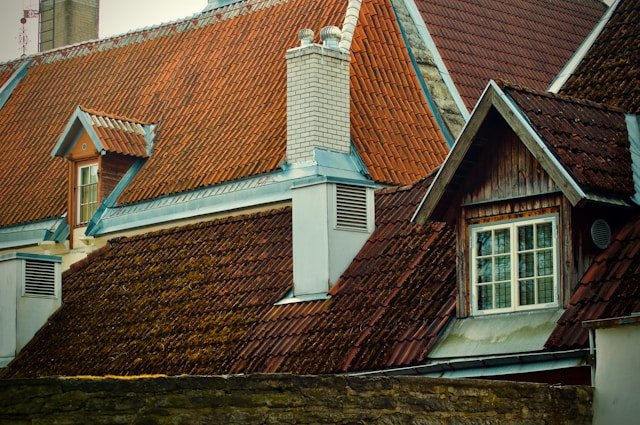
How to Inspect a Roof: The Residential Roof Inspection Process
A proper roof inspection looks at more than just the surface. It includes checking the interior and other areas to ensure everything is working as it should. Here’s how the process generally works:
- Inspect the Roof Surface: Inspectors check the roof for missing, damaged, or cracked shingles. They also look for signs of algae, moss, or other growth that could damage the roof’s surface.
- Examine the Flashing and Seals: Inspect the flashing around chimneys, vents, and skylights. Flashing protects these areas from leaks, so it’s crucial to verify that they are still sealed properly.
- Check for Structural Damage: Inspectors examine the roof’s structure to see if there are any sagging or soft spots. Structural damage can cause serious issues and may need immediate repair.
- Look for Signs of Water Damage in the Roof Space: Inspectors enter the upper space to check for water stains, mould, or damp areas. These signs show if there are any leaks in the roof.
- Assess the Gutters and Drainage: The inspector will check the gutters to make sure water flows freely. Poor drainage can cause water to back up and damage the roof.
How Much Does a Residential Roof Inspection Cost (per square foot) in Brooklyn, NYC?
The cost of a roof inspection can vary depending on the type of inspection and the size of your roof. Here is a complete detail of residential roof Inspection cost (per square foot) in Brooklyn, NYC:
| Inspection Type | Material Cost (per sq. ft.) | Labour Cost (per sq. ft.) | Total Cost (per sq. ft.) |
| Basic Visual Inspection | $0 | $2.50 – $7.00 | $2.50 – $7.00 |
| Drone Inspection | $0 | $2.75 – $7.25 | $2.75 – $7.25 |
| Infrared (Thermal) Inspection | $0.10 – $0.30 | $3.00 – $7.50 | $3.10 – $7.80 |
| Comprehensive Inspection | $0.05 – $0.20 | $3.00 – $7.00 | $3.05 – $7.20 |
| Wind Damage Inspection | $0 | $2.50 – $6.50 | $2.50 – $6.50 |
| Leak Detection Inspection | $0.05 – $0.15 | $3.00 – $6.50 | $3.05 – $6.65 |
| Gutter and Drainage Inspection | $0 | $2.50 – $6.00 | $2.50 – $6.00 |
| Flat Roof Inspection | $0 | $3.00 – $7.00 | $3.00 – $7.00 |
DIY vs. Professional Inspections: Which One is Better?
When it comes to inspecting your roof, you have two options: do it yourself (DIY) or hire a professional. Both choices have their benefits, but it’s important to know the differences.
| Aspect | DIY Inspection | Professional Inspection |
| Cost | Low | Higher (due to labor and tools) |
| Time | Quick (if you know what to look for) | Takes longer (1-2 hours depending on roof size) |
| Skill Required | Basic knowledge of roofing | Expert knowledge and experience |
| Thoroughness | Limited to what you can see | Covers all areas (visible & hidden) |
| Tools Used | Basic tools (ladder, flashlight) | Specialized equipment (infrared cameras, drones) |
| Risk | Risk of injury from ladders or falling | No personal risk (done by professionals) |
| Accuracy | Can miss small issues | Can miss small issues Accurate, thorough, and detailed |
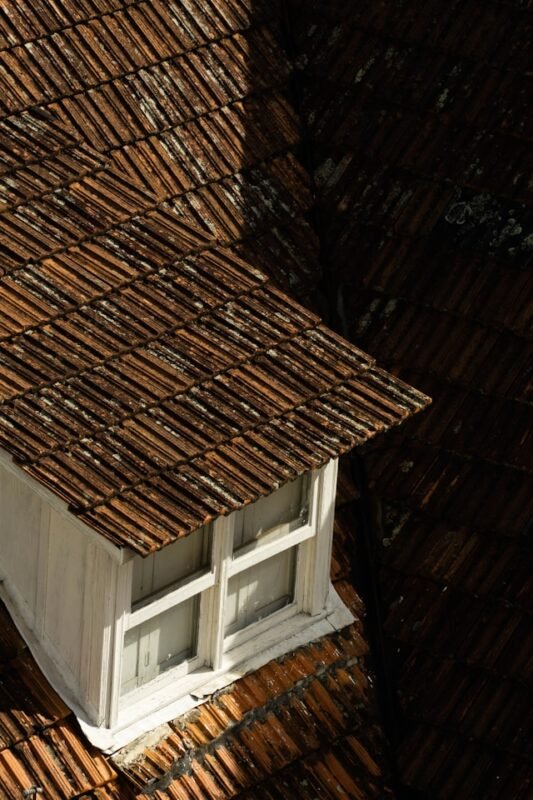
Residential Roof Inspection Types
There are different types of roof inspections, each serving a specific purpose. The inspection you choose depends on your needs and the condition of your roof. Here are the most common types of residential roof inspections:
- Visual Inspection: A basic check from the ground or a ladder. It focuses on visible damage like missing shingles or leaks.
- Drone Inspection: Utilises drones to inspect hard-to-reach areas without the need for ladders. It provides detailed images and helps assess roof condition from every angle.
- Infrared (Thermal) Inspection: Uses infrared cameras to detect temperature differences in the roof. This helps find hidden leaks, water damage, or poor insulation.
- Comprehensive Inspection: A detailed inspection that covers the entire roof system, including the attic, shingles, flashing, and gutters. It looks for potential problems in all areas.
- Wind Damage Inspection: Focuses on the effects of wind on your roof. It checks for lifted shingles, damage to flashing, and any loose areas that could lead to leaks.
- Leak Detection Inspection: Identifies hidden leaks that aren’t visible from the ground. It uses moisture detection tools and other methods to find leaks.
- Flat Roof Inspection: A specialised inspection for flat roofs. It checks for issues like ponding water, cracking, or membrane damage.
💡Expert Insights for Residential Roof Inspection
- Catch small issues early to prevent major, costly roof damage.
- Inspect after storms to identify hidden damage from wind or hail.
- Check flashing and seals around chimneys and vents to prevent leaks.
- Look for water stains or mould inside the home as signs of roof leaks.
- Inspect the roof space regularly to detect hidden roof problems.
- Ensure proper roof ventilation to prevent moisture buildup and damage.
- Hire certified inspectors for thorough, accurate roof assessments.
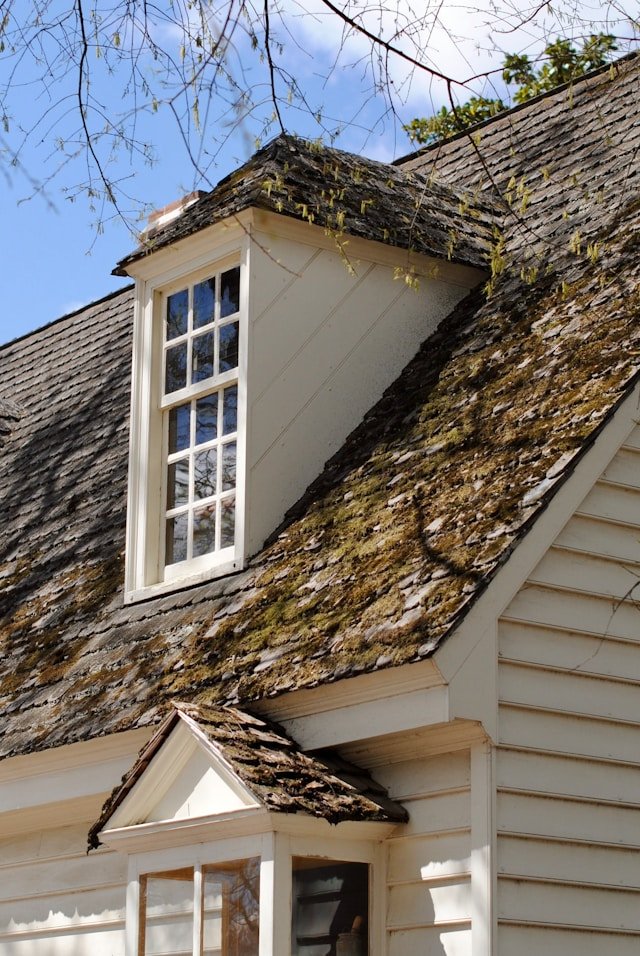
Where to Find a Professional Roofing Contractor in Brooklyn, NYC?
Are you looking for an expert roofing contractor in Brooklyn, NYC? SR General Construction has you covered! Our business is located at 8807 Avenue B, Brooklyn, NY 11236, United States, in the Canarsie area.
We proudly serve all areas of Brooklyn with high-quality, durable roofing solutions. From new installations to repairs and maintenance, we provide the best service at affordable prices. Contact us and experience why we’re Brooklyn’s roofing experts!
FAQ’s
1. What is a residential roof inspection?
A residential roof inspection is a complete evaluation of your roof’s condition. It helps spot any potential problems early before they turn into costly repairs.
2. Why is a roof inspection necessary for homeowners in Brooklyn?
Brooklyn experiences harsh weather conditions like heavy snow and strong winds. A roof inspection ensures that any damage is detected early, preventing more significant issues from arising later.
3. How often should I schedule a roof inspection?
It’s recommended to schedule a roof inspection at least once a year. You should also inspect your roof after a major storm or weather event.
4. What are the main signs that my roof needs inspection?
Signs include missing or damaged shingles, water stains on ceilings, and visible moss or algae growth. If you notice sagging or leaks, a roof inspection is necessary.
5. How does a professional roof inspection differ from a DIY inspection?
A professional inspection uses advanced tools and expertise to detect hidden issues. DIY inspections may miss critical problems that could worsen over time.
6. How long does a roof inspection take?
Most roof inspections take 1 to 2 hours to complete. The duration depends on the size and condition of your roof.
7. How much does a roof inspection cost in Brooklyn?
Roof inspections in Brooklyn typically cost between $2.50-$7.00 per square foot. Prices vary depending on the type of inspection and the roof’s condition.
8. What is the cost of a drone roof inspection?
Drone inspections typically cost between $2.75 and $7.25 per square foot. Drones provide detailed aerial views of your roof, especially in hard-to-reach areas.
